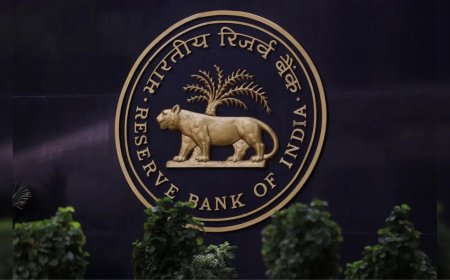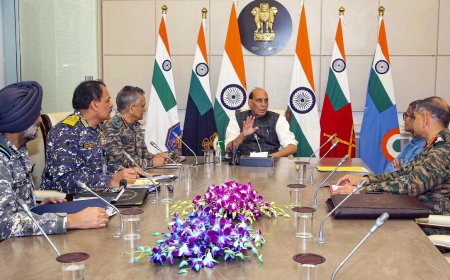Nimisha Priya faces death in Yemen: Can India secure a lifeline for her before July 16?
With Nimisha Priya facing execution in Yemen on July 16, India races against time to secure her release through diplomatic efforts and blood money negotiations. Will a last-minute pardon save her?

A Race Against Time for Justice
With the clock ticking toward July 16, India faces a moral and diplomatic challenge of rare magnitude. Nimisha Priya, an Indian nurse from Kerala, stands on the brink of execution in Yemen after being convicted of murdering her Yemeni employer in 2017. While the incident has sparked controversy, the focus has now shifted to whether India can intervene diplomatically and morally to save her life within days.
The urgency stems from Yemeni law, which allows a death sentence to be waived if the victim’s family grants forgiveness through the process of "blood money", or diya. Nimisha’s mother and a team of Indian human rights activists are racing against time to raise the required compensation and secure a pardon.
Background: The Case That Shook Two Nations
Nimisha Priya had moved to Yemen in 2008 to work as a nurse. In 2017, she was accused and later convicted of murdering her employer, Yahya Al Jassam. According to her defense, the act was committed under severe duress after enduring months of physical and mental abuse. Reports allege that Al Jassam had confiscated her passport, restricting her movement, and subjected her to ongoing torture.
The court, however, rejected the self-defense argument. She was sentenced to death in 2020. The family of the victim has so far refused to accept blood money, a crucial legal provision under Yemen's Sharia-based judiciary system that could overturn the sentence.
Diplomatic Efforts Intensify
India’s Ministry of External Affairs (MEA) has been actively pursuing consular access and exploring diplomatic avenues. The Indian Embassy in Djibouti, which handles affairs in Yemen, has been engaged in high-level talks with Yemeni officials.
In a statement issued earlier this week, MEA spokesperson Randhir Jaiswal said:
“We are doing everything possible to assist Nimisha Priya within the confines of the law and local customs in Yemen. The government remains committed to ensuring the welfare of its citizens abroad.”
However, given the volatile state of Yemen’s internal politics and ongoing civil conflict, diplomatic maneuvering is complex. Yemen currently has multiple power centers, with some regions under the control of the Houthi rebels, making negotiations arduous and unpredictable.
The Blood Money Campaign
At the heart of the last-ditch effort to save Nimisha is the "Save Nimisha" campaign, spearheaded by her mother and Indian NGOs, including the Save Nimisha Priya International Action Council. They are trying to negotiate a settlement with the victim’s family and raise the necessary blood money, reportedly in excess of ₹2 crore (approx. $250,000).
Anil K Joseph, legal expert and chairperson of the council, said:
“Our legal team has made significant progress in getting access to the victim’s family. However, time is critical, and we urge all Indians to come together in this humanitarian effort.”
Crowdfunding initiatives have been launched across platforms, including Milaap and Ketto, to raise funds. Several high-profile personalities from Kerala and beyond have publicly lent support, demanding urgent government intervention and contributions toward the blood money.
Legal Gray Zones and Ethical Dilemmas
The case poses a conundrum for both Indian and international legal communities. On one hand, it exposes the vulnerabilities of migrant workers, especially women, in conflict-prone and patriarchal societies. On the other, it also questions the boundaries of self-defense, sovereignty, and how far a country can go in intervening in a foreign legal system.
Neeti Tandon, a professor of international law at Jawaharlal Nehru University, commented:
“While India has a right to protect its citizens, it must operate within Yemen's legal framework. The diplomatic route involving blood money is perhaps the most culturally and legally acceptable in this scenario.”
Investor and Public Sentiment: Human Rights Over Geopolitics
While this is not a market-linked development, human rights issues such as these can influence foreign policy direction, trade ties, and soft diplomacy initiatives. India’s relationship with the Middle East is deeply rooted in economic interdependence, especially with the Gulf Cooperation Council (GCC) nations. Though Yemen is not part of the GCC, the region’s geopolitical sensitivities may prompt India to tread carefully.
From an investor standpoint, the Indian government’s proactive stand in defending its citizens’ rights overseas often boosts confidence in its governance and diplomatic integrity, especially in the realm of labor exports, foreign remittances, and diaspora welfare.
The Final Window: July 16 Execution Looms
As of now, the execution is scheduled for July 16, 2025. Legal experts point out that the only window to avert this is if the victim’s family formally pardons Nimisha and accepts the blood money by then.
With just a week remaining, the question is not just about diplomacy but also India’s moral compass. Will India be able to gather the financial, legal, and diplomatic resources needed to grant Nimisha a second chance at life?
The coming days will not only determine the fate of one woman but could also set a precedent for how India handles complex international legal humanitarian crises in the future.
What's Your Reaction?
 Like
0
Like
0
 Dislike
0
Dislike
0
 Love
0
Love
0
 Funny
0
Funny
0
 Angry
0
Angry
0
 Sad
0
Sad
0
 Wow
0
Wow
0












































































